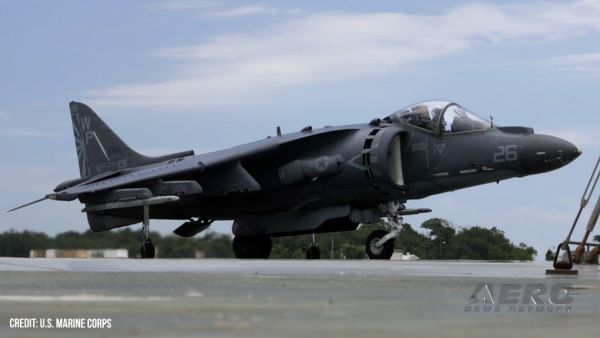By John Alan Cohan, Esq.
Clearly, the aviation
industry industry is important to the economy of the United States.
There are many issues that have come into sharp focus for the
aviation industry since the September 11 terrorist attacks,
including effects of the free market, increased insurance costs,
terrorism, change in customer habits, expenses led by new security
measures, rising fuel costs, and emerging markets such as ownership
of fractional interests in private aircraft.
At least 3 million people get their jobs directly or indirectly
from the airline industry. Some statistics indicate that about 13
percent of the American economy depends directly or indirectly on
the airline industry. Today, even the relatively successful
carriers are struggling mightily.
It seems to me that looking to the future, carriers will only
survive if they have transformed themselves in a way that
recognizes the existence of a new business model. They have to be
cognizant that in most of their markets there is very low-cost
competition. There is no single business model that endures
forever. The problem with the traditional network carriers is that
since deregulation they have focused on competing with one another.
Now that the low-cost carriers are so pervasive and cover so many
markets, they need to be further re-engineered to be competitive
with them as well. This apparently is well underway at a number of
the major carriers. The same phenomenon apparently is taking place
in Canada and Europe, where companies are either going to go away,
they’re going to reorganize in bankruptcy, or they will
transform themselves.
To some extent commercial aviation has been eroded by people
who, instead of flying for face-to-face meetings, will instead have
a conference call. Also, business travelers are increasingly
pressed by corporate managers to book routes that are at lower
costs. In addition, the major carriers are losing some of their
business to private aircraft.
One of the most difficult hurdles that impact commercial
aviation is intrusive searches at airport security checkpoints.
Many women have complained of pat-down searches that are
humiliating and disturbing. Rules permit a random search of
carry-on bags that have passed through the x-ray scan without
arousing suspicion. Officials justify these intrusive searches
based on the notion that there is an ongoing threat to the
public.
In a case concerning airport security searches, it was held that
an airport screening search is reasonable if:
“(1) it is no more
extensive or intensive than necessary, in light of current
technology, to detect weapons or explosives;
(2) it is confined in good faith to that purpose;
and
(3) passengers may avoid the search by electing not to
fly.”
Of course, in the 21st Century, avoiding the search by electing
not to fly is simply not a viable option. An American citizen
should not be forced to choose between two constitutional rights:
the right to travel and the right to remain free from unreasonable
searches. Forcing passengers to choose between the right to travel
and the right to remain free from unreasonable searches is a form
of coercion. Except for those who opt to take private aircraft or
other alternative transportation, most passengers have no realistic
alternative.
Once a passenger places baggage on the x-ray machine, the
passenger, according to prevailing law, consents to a random,
physical search, when in reality the passenger has not consented to
any search or, at best, has consented only to the x-ray search and
not the random physical search. Nonetheless, a federal court has
observed that an x-ray scan is “inconclusive, justifying
further search, even when it doesn’t affirmatively reveal
anything suspicious.”
The random searches go beyond what is necessary to detect
weapons and explosives, a function that is adequately served by the
x-ray scan. The random, physical search is in effect a general
warrant to search for items other than weapons and explosives. In
some instances, these searches have resulted in arrests for
possession of illegal drugs or other contraband.
Of course, if an x-ray scan arouses suspicion, due to an
indeterminate shadow or outline, probable cause exists to undertake
a physical search.
No one discounts the tragic events of September 11, 2001, and
the enormous economic repercussions that have resulted from those
attacks. Airplane pilots are now permitted to carry guns, and their
cockpits are securely locked, so that even if a terrorist does
manage to get aboard an aircraft, there are additional and
substantial hurdles to taking over an airplane. It seems to me that
random, physical searches of carry-on luggage following x-ray
searches, and random searches of people who have successfully
passed through the security point without arousing suspicion have
gotten out of control.
FMI: John Alan Cohan is a lawyer who handles tax and aviation
matters. JohnAlanCohan@aol.com
 Citation Operators Get Another Flight Data Connection for QA
Citation Operators Get Another Flight Data Connection for QA ANN's Daily Aero-Linx (06.01.25)
ANN's Daily Aero-Linx (06.01.25) NTSB Final Report: Bellanca 8GCBC
NTSB Final Report: Bellanca 8GCBC Aero-News: Quote of the Day (06.01.25)
Aero-News: Quote of the Day (06.01.25) Classic Aero-TV: High-Speed Match-up - Venom and GE Rebirth A Legend
Classic Aero-TV: High-Speed Match-up - Venom and GE Rebirth A Legend


